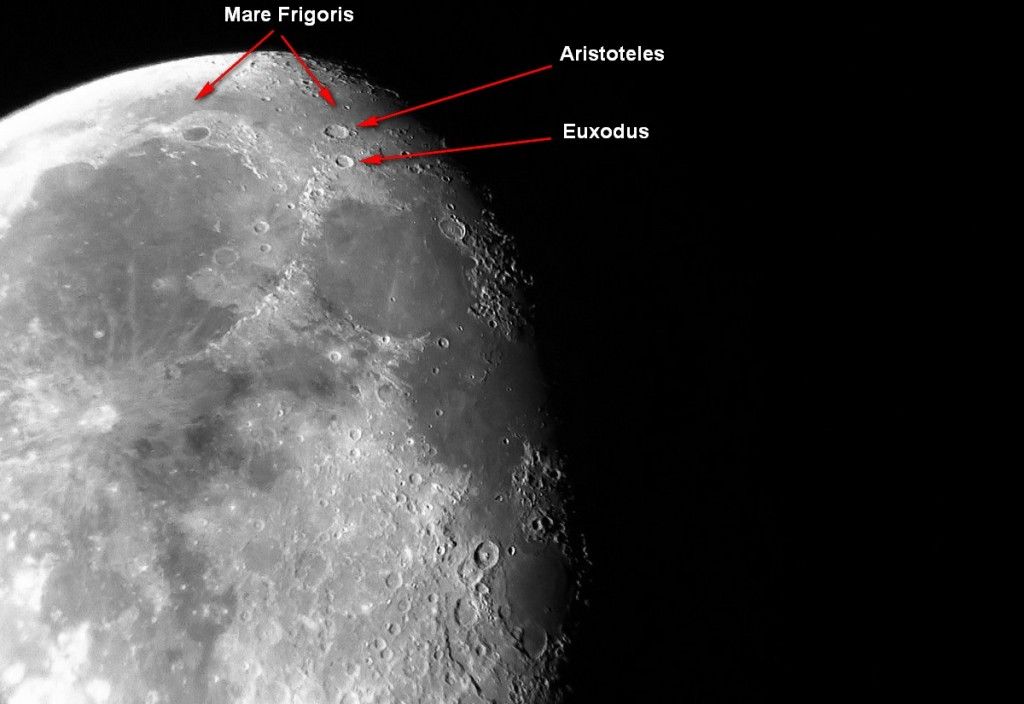Optics: Celestron C8-N telescope, plossl 20mm, 2x Barlow
Mount: CG5 (EQ5)
Device: Sony HDR CX105
Filter: No
Date: 10/02/2011
Location: Baia Mare, Romania
Processing: not (snapshots)
Aristoteles (87 km.) and Eudoxus (67 km.) craters.
Aristotle (Greek: Ἀριστοτέλης, Aristoteles) (384 BC - 322 BC) was a Greek philosopher, a student of Plato and teacher of Alexander the Great. His writings cover many topics, including physics, metaphysics, theater, poetry, music, logic, rhetoric, linguistics, politics, ethics, biology, and zoology. Together with Plato and Socrates (who was Plato's teacher), Aristotle is one of the most important figures, as the founder of Western philosophy.
Eudoxus of Cnidus (410 or 408 BC - 355 or 347 BC) came up with the tradition of Pythagoras, who believed that mathematics is the key to astronomy. He started the necessary interaction between theory and observation in astronomy and gave the first systematic explanation of the movement of the Sun, Moon and planets. None of his writings have remained, but his contributions are made in several Greek sources and the latest comments from Byzantine times. What is known about Eudoxus life is derived from the writings of Diogenes Laërtius from 3rd century AD
Phainomena, a work now lost of Eudoxus, is the oldest known Greek source that describes groups of stars as constellations. Constellations help astronomers and navigators to locate certain stars and their use for navigation at sea was of paramount importance to the Greeks.
Registax 5 processed video 70 frames 90% lowest quality
Registax 5 processed video 21 frames 95% lowest quality
Registax 5 processed video 2 frames 100% lowest quality
The image below is a video capture made on July 20, 2011.




 Friday, April 08, 2011
Friday, April 08, 2011
 Unknown
Unknown








 Posted in:
Posted in: 


0 comments:
Post a Comment